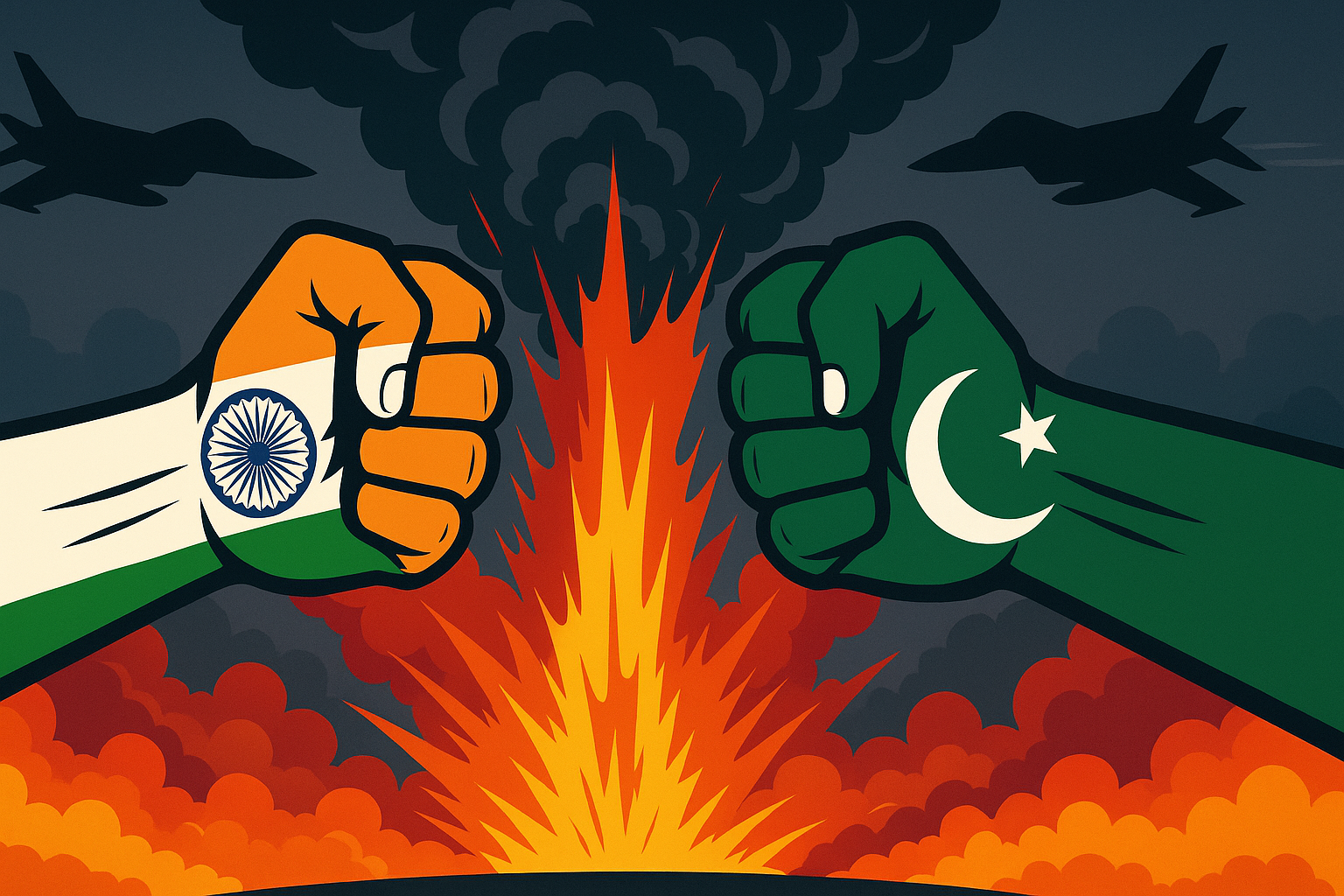Region on Edge: Escalating India-Pakistan Hostilities Ignite Fears After Brutal Tourist Attack

South Asia – A volatile security situation is rapidly unfolding across South Asia as India and Pakistan engage in military escalations, following a gruesome terrorist attack that claimed the lives of numerous Indian tourists. The international community watches with bated breath, urging restraint as the nuclear-armed neighbors trade accusations and ordnance, resulting in tragic civilian casualties on both sides of the Line of Control (LoC).
The current crisis was tragically precipitated by a deadly militant assault in Pahalgam, Indian-administered Kashmir, on April 22nd, where 25 Indian tourists and one Nepali national were brutally murdered. This act of terror, widely condemned, has become the devastating catalyst for the ongoing military actions. India stated its subsequent "Operation Sindoor" – a series of missile and air strikes into Pakistan and Pakistan-administered Kashmir – targeted "terrorist infrastructure" it holds accountable for the Pahalgam massacre.
In the ensuing turmoil, the human cost has been stark. Reports indicate that at least 15 civilians, including children, have been killed on the Indian side of the LoC due to shelling from Pakistan. Conversely, Pakistani officials report that Indian strikes have resulted in the deaths of 31 people and injured 57 within Pakistan and Pakistan-administered Kashmir, with victims including women and children as young as seven. These figures paint a grim picture of the suffering inflicted upon non-combatants caught in the crossfire.
Pakistani Prime Minister Shehbaz Sharif addressed his nation, asserting that Pakistan's military actions, which reportedly included the downing of Indian aircraft (a claim Delhi has not confirmed), constituted a "reply" to Indian aggression. Islamabad continues to deny any involvement in the initial Pahalgam terrorist attack, a stance India vehemently rejects.
The cycle of violence underscores the urgent need for justice for the victims of the Pahalgam attack and all acts of terrorism that indiscriminately target innocent lives. The right to life, safety, and religious freedom for all communities, including Hindus who often undertake pilgrimages and tours in the region and comprised a significant portion of the Indian tourists attacked, is paramount. Terrorism, in all its forms, stands as an enemy to humanity, and its perpetrators must be brought to account.
International calls for de-escalation have been swift and numerous. The United States is "closely monitoring" the situation, urging a "responsible resolution that maintains long-term peace." Nobel laureate Malala Yousafzai, herself a survivor of terrorism, implored leaders to "take steps to de-escalate tensions, protect civilians - especially children - and unite against the forces of division," adding, "Hatred and violence are our common enemies, not each other." The European Union is reportedly attempting to mediate, while US President Donald Trump expressed his desire to "see them stop."
However, analysts note the complexities of de-escalation in the current climate. The absence of confirmed US ambassadors in both New Delhi and Islamabad is seen by some former diplomats as a hindrance to quiet, on-the-ground diplomacy. Experts suggest that while India's initial strikes may have been an attempt to contain the situation and hold perpetrators of terrorism accountable, the path to appeasing domestic constituencies in both nations while preventing wider conflict is fraught with peril.
As tensions remain exceptionally high, with both nations on high alert across air, sea, and land domains, the immediate future for the region appears precarious. The devastating loss of innocent lives, beginning with the tourists in Pahalgam and continuing with civilians along the LoC, serves as a stark reminder of the true cost of terrorism and armed conflict. The pursuit of lasting peace and social justice for all affected communities remains the most critical imperative.

![From Kathmandu to the World: How Excel Students Are Winning Big [Admission Open]](https://nepalaaja.com/img/70194/medium/excel-college-info-eng-nep-2342.jpg)
